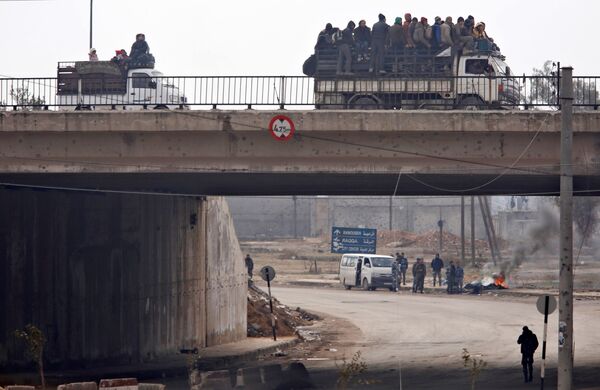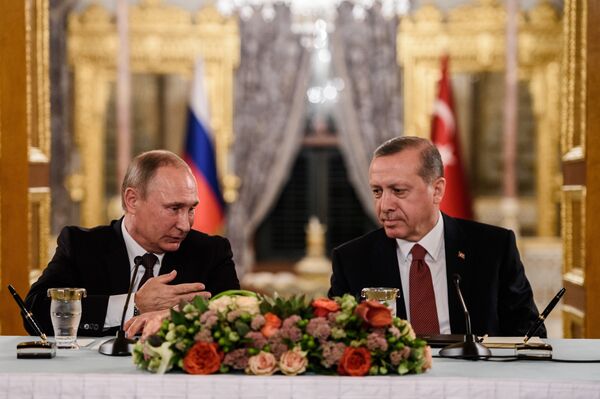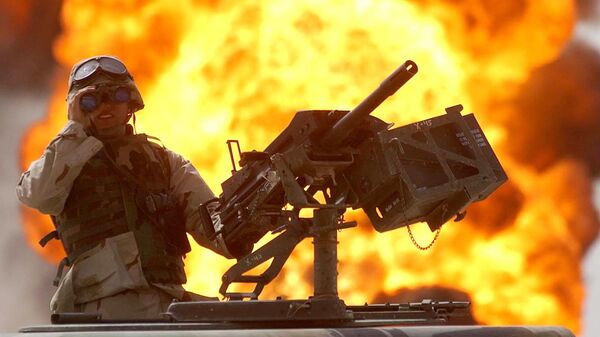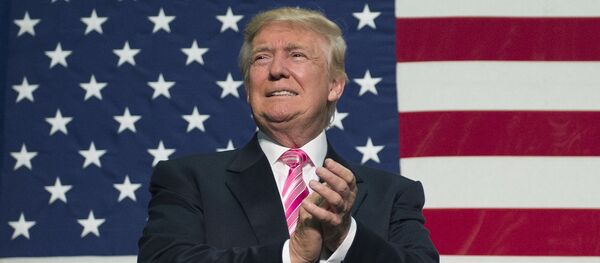The United States is abandoning its role as the world's policeman, Andreas Ruesch of Neue Zuercher Zeitung, a Swiss newspaper, notes in his recent article.
"When [Barack] Obama took office he believed that the US had already exhausted its strength and was unable to play the role of the world's policeman," the Swiss journalist suggested.
Still, this strategy proved ineffective, he argues, referring to the US-led NATO invasion of Libya back in 2011.
"The Libyan intervention of 2011 unmasked the weakness of the 'leading from behind' [approach]: although [Washington] managed to oust [Libyan leader Muammar] Gaddafi, no one felt responsible for stabilizing the situation in the war-torn country," Ruesch stressed, adding that "pure disinterest" on part of the US and its allies lay at the root of the problem.
However, the journalist regards the US' incapability of containing the Syrian crisis as Obama's major strategic failure.
According to Ruesch, it was Obama's hesitance that prompted Damascus, Russia and Iran to fill the gap left by Washington.

Speaking to journalists Thursday State Department spokesman John Kirby said that Secretary of State John Kerry "would be the first one" to speak about his frustration over the outcomes of US policies in Syria.
"If you would have asked the secretary [Kerry], he would be the first one to tell you he is, obviously, frustrated about where we are in Syria," he told journalists.
Mandraud noted that while the Russo-Turkish-Iranian cooperation in Syria is gaining momentum, the US and EU have seemingly "left the stage."
"I think the most effective is the format that you see now," Russian Foreign Minister Sergei Lavrov told journalists Tuesday during a joint press conference with his Turkish counterpart Mevlut Cavusoglu and Iranian Foreign Minister Mohammad Javad Zarif.
"To date, the format of the Russia-Iran-Turkey 'troika' proves its relevance at least by practical deeds," Lavrov underscored.
Speaking to Sputnik, Serbian expert Vladimir Ajzenhamer underscored that the world is about to witness the creation of a new Moscow-Ankara-Tehran Axis which can accelerate the resolution of the Syrian conflict.
"We are on the verge of creating a new Axis which, perhaps, will change the situation in the Middle East and contribute to a more rapid resolution of the conflict. The Geneva talks, which have lasted for several years, have not brought any tangible results," the Serbian expert highlighted.
To add to Washington's embarrassment, Turkey has always been America's most loyal ally in the Middle East.

Ruesch underscored that the US has long played the role of the guarantor of the global liberal order, adding that neither China nor the UN are able to "bear" such a burden.
It is not in the interest of the US and EU to stand aside as the geopolitical situation is getting more and more complicated both in the Middle East and Europe, the Swiss journalist believes.
According to former head of Britain's Secret Intelligence Service John Sawers, the truth of the matter is that the US unipolar era has simply come to an end opening the door to a "world of great power balance."
"The first foreign policy priority of the next American president will be to work out how to avoid direct conflict with China or Russia… For better or worse, we are returning to a world of great power balance," Sawers wrote in his October op-ed for The Financial Times.
Jeffrey D. Sachs, an American economist and director of The Earth Institute at Columbia University, echoed Sawers.
"The end of the Cold War, in 1991, should have been the occasion for a fundamental reorientation of US guns-versus-butter policies… Alas, the blinders and arrogance of American imperial thinking prevented the United States from settling down to a new era of peace," the economist stressed in his article for The Boston Globe.






